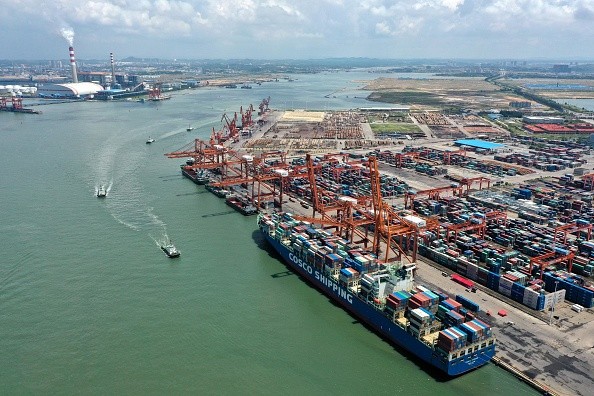
Indian Govt issues fresh guidelines to protect ship movement in the Persian Gulf
NEW DELHI : The Indian government has put the country’s Navy on high alert to respond quickly to calls of distress from ships, both Indian and foreign flag carriers, moving through the strife-torn Persian Gulf region, where tensions have escalated since Iran launched a missile strike against Israel.
India’s shipping ministry has reached out to the Indian Navy to coordinate any efforts to rescue ships in distress and respond to incidents that compromise the security of shipping lines in these sensitive regions—which include the Persian Gulf, the Strait of Hormuz, the Gulf of Oman, the Gulf of Aden, the Bab-el-Mandeb Strait, the Red Sea, the Somali Basin, and the Arabian Sea region.
“We have established a series of protocols that have to be followed in case of ships movement in sensitive regions. These are being followed with quick response available from the Navy if the situation warrants,” said Capt. Anis Joseph, deputy nautical adviser and senior deputy director general (technical/maritime security), Directorate General of Shipping.
“The systems have been established ever since the beginning of the Red Sea crisis and have only been reiterated again now in the wake of recent incidents. We don’t see the current situation having a major impact on the movement of ships and Indian crew through the region,” he said.
In an earlier circular, DG Shipping had introduced an online ship reporting mechanism for all vessels operating in the region. In its latest circular, the authority has streamlined the reporting process to ensure that a robust database is maintained for efficient monitoring and swift response to any maritime security threat.
Ships have also been directed to contact the nearest Indian Navy vessel in case of any incident using the designated communication channel, along with their location, describe the situation, communicate the intended course of action, and seek further guidance.
The advisory also advises ships to inform the United Kingdom Maritime Trade Operations and other applicable agencies, along with organisations relevant to the region and type of incident. As soon as the situation allows, a first information report should be transmitted to the DG Comm Centre, the shipping ministry said in its circular.
It added that in the wake of the prevailing security concerns, all the vessels are advised to conduct comprehensive ship shore security drills encompassing all pertinent security scenarios, including but not limited to piracy and loitering munitions threats. Additionally, Ship Security Alert System (SSAS) testing may be undertaken before transiting through the regions above, the advisory says.
“All stakeholders are advised to maintain a proactive stance towards security, constantly enhancing their preparedness to face evolving maritime security challenges through regular reviews and training. Accordingly, collective vigilance and adherence to the security SOPs/advisories are crucial for mitigating these varied and significant threats,” DG Shipping said in its circular.
“We are among the very few maritime systems that have evolved a complete system to deal with any eventuality affecting movement of ships to and from the country. The present developments are being observed and standard operating procedures (SOP) in place should be able to handle any evolving issues,” Joseph said.
The procedure to ensure uninterrupted movement of shipping may come with its own share of challenges as increasing cost of operations raises overall freight rates.
Increased security protocol and run time of vessels may raise costs which may see further increase the freight rates that have already moved northwards due to the ongoing crisis and are up over 50% this April over the same period last year. Moreover, insurance costs are also set to start pinching the shipping companies soon if the present crisis escalates.
